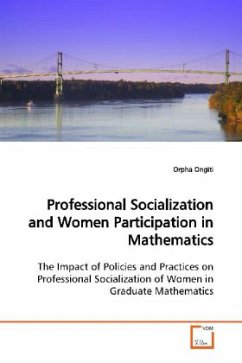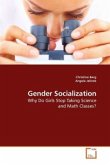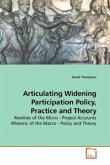The under-participation of women in the mathematical
sciences at the doctoral level is of great concern to
the mathematics community in the United States, if
not to the nation, and perhaps other nations as well.
Based on a study at two mathematics departments in
the U.S., this book explains a successful model of
departmental policies that enhance professional
socialization, ultimately increasing the recruitment
and retention of women in the doctoral level. The
author discusses U.S. policies on mathematics;
intervention measures by U.S. government agencies,
mathematics communities and universities;
socialization approaches; and theoretical frameworks
for understanding the socialization of graduate
students. The analyses should be of interest to
mathematicians and policymakers who are interested in
increasing the participation of women in doctoral
level mathematical sciences. The book will be
relevant to the sciences and other disciplines;
scholars who study diversity in higher
education can learn how departmental policies and
practices impact the socialization of not only women
in graduate mathematics, but of all students.
sciences at the doctoral level is of great concern to
the mathematics community in the United States, if
not to the nation, and perhaps other nations as well.
Based on a study at two mathematics departments in
the U.S., this book explains a successful model of
departmental policies that enhance professional
socialization, ultimately increasing the recruitment
and retention of women in the doctoral level. The
author discusses U.S. policies on mathematics;
intervention measures by U.S. government agencies,
mathematics communities and universities;
socialization approaches; and theoretical frameworks
for understanding the socialization of graduate
students. The analyses should be of interest to
mathematicians and policymakers who are interested in
increasing the participation of women in doctoral
level mathematical sciences. The book will be
relevant to the sciences and other disciplines;
scholars who study diversity in higher
education can learn how departmental policies and
practices impact the socialization of not only women
in graduate mathematics, but of all students.








